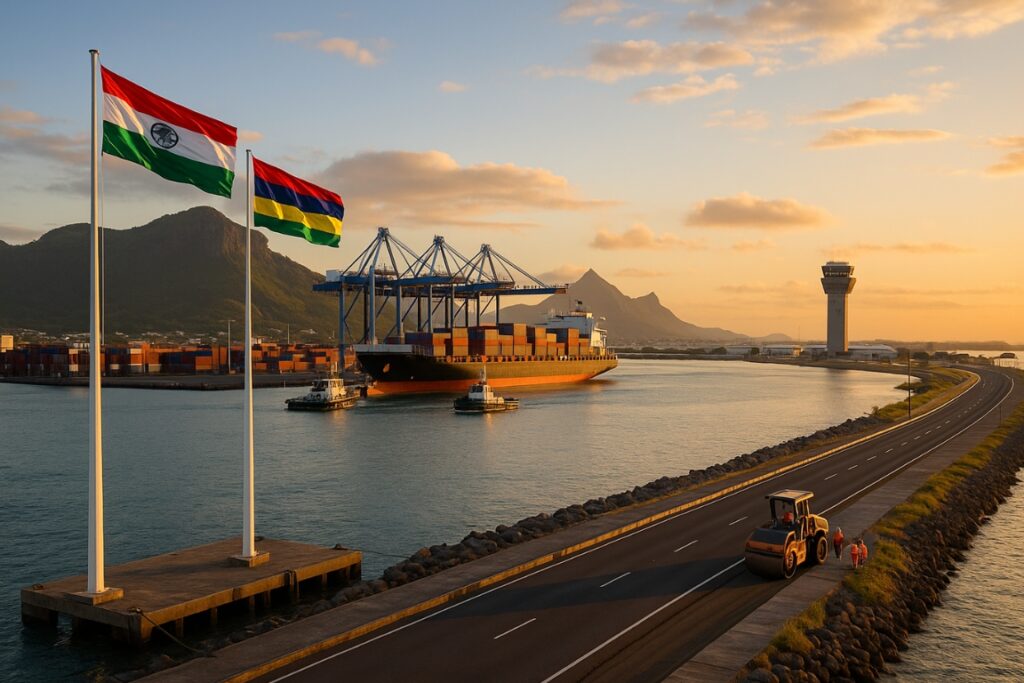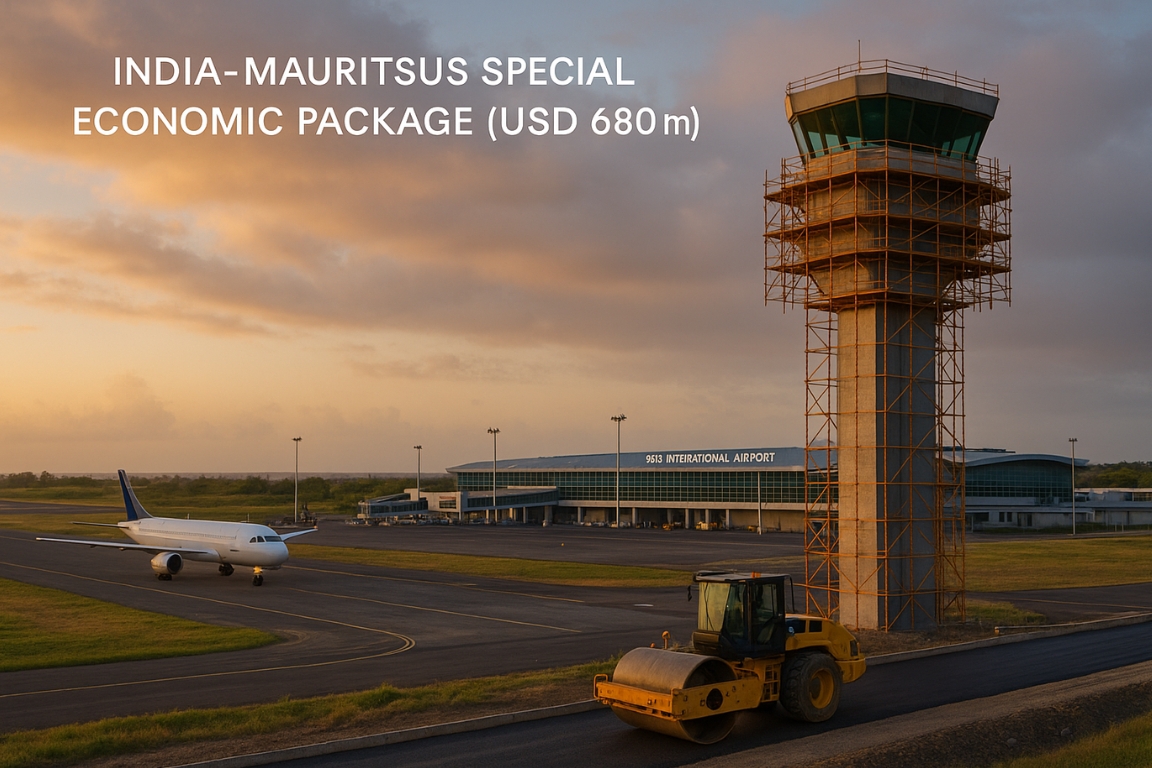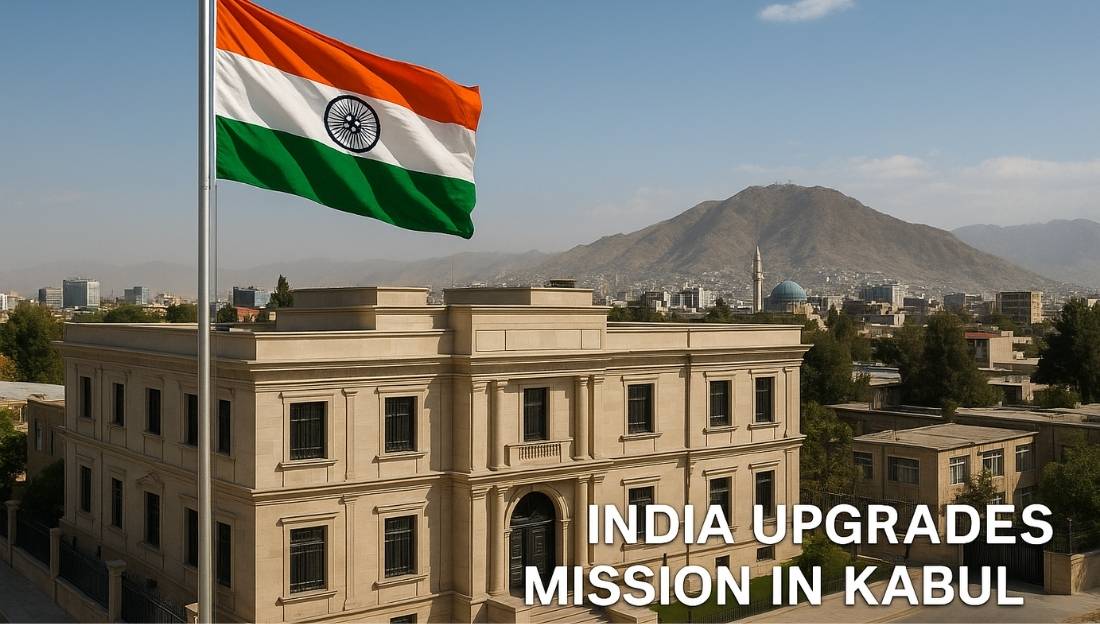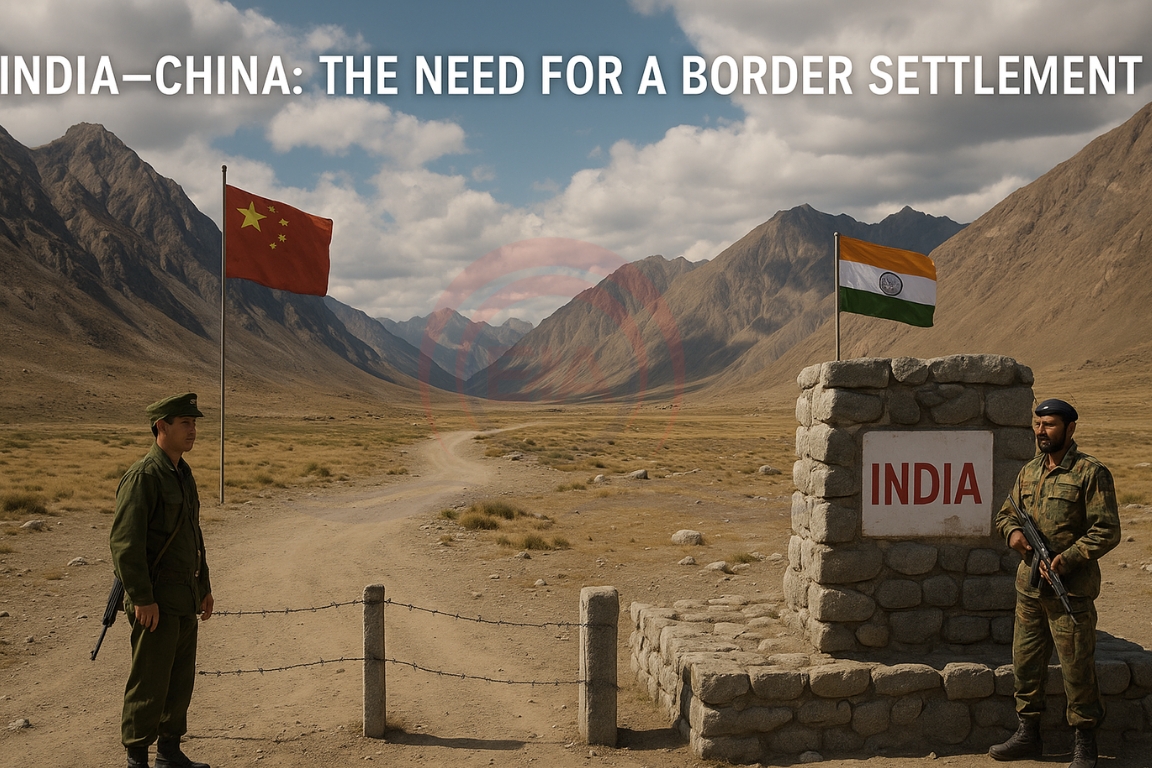India has announced a Special Economic Package of USD 680 million for Mauritius during the visit of Mauritian PM Navinchandra Ramgoolam to Varanasi in 2025.
Highlights of the Special Package
- Total Value: USD 680 million to support at least 10 major projects.
- Infrastructure Focus: Includes upgrades in ports, airports, roads, and building of new schools and hospitals.
- Key Allocations:
- Around USD 440 million (grant + Line of Credit) for large-scale projects.
- Construction of a new Air Traffic Control (ATC) tower at SSR International Airport.
- Expansion of Motorway M4 for connectivity.
- Maritime Cooperation: Joint redevelopment of Port Louis port to make it a regional maritime hub.
- Financial Linkages: Both sides to enable local currency trade after the successful launch of UPI and RuPay cards in Mauritius.
- Cultural Aspect: Package highlights people-to-people ties, as nearly 70% of Mauritians are of Indian origin.

India–Mauritius relations in 4 simple points:
- Strong Historical & Cultural Ties – Diplomatic relations began in 1948, strengthened by shared culture, diaspora, and historical bonds.
- Trade & Investment – Bilateral trade in 2022–23 was USD 554 million; Mauritius is a major FDI source for India and signed CECPA (2021), India’s first trade pact with Africa.
- Defence Partnership – India is Mauritius’ key defence partner, supporting with patrols, aircraft, helicopters, and a USD 100 million Line of Credit for defence needs.
- Space & Technology Cooperation – A 2023 MoU enables joint satellite development, showing growing collaboration in high-tech areas.
Strategic Importance of Mauritius for India
- Location: Situated in the Indian Ocean, key for maritime security and sea-lane safety.
- Agaléga Island: Strategically located 1,100 km north of Mauritius; India helped build an airstrip and jetty in 2024.
- Countering China: China’s FTA with Mauritius (2021) enhances its presence in Africa; India uses deeper ties to balance this.
- Blue Economy: Vital partner for fisheries, offshore energy, and maritime resources.
- Regional Role: Active member of IORA, contributing to regional cooperation.
Concerns in the Relationship
- Tax Treaty Misuse: Earlier loopholes in DTAA allowed round-tripping and money laundering.
- Security Challenges: Evolving geopolitics in the Indo-Pacific require constant vigilance.
- China’s Growing Footprint: China’s Belt and Road projects in Mauritius increase strategic competition.
Way Forward
- Expand defence and security cooperation, including joint training and counter-terrorism.
- Strengthen maritime security and regional connectivity.
- Enhance economic ties through digital payments, local currency trade, and infrastructure development.
- Deepen people-to-people linkages to build long-term goodwill.
Conclusion:
In essence, Mauritius remains a cornerstone of India’s Indian Ocean strategy, where development cooperation blends with strategic partnership to counter regional challenges.





